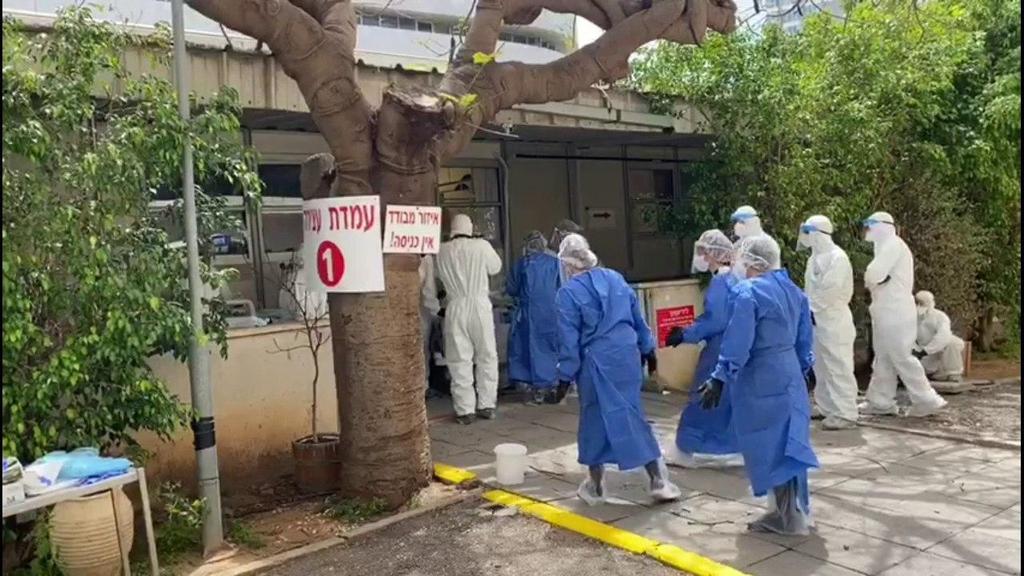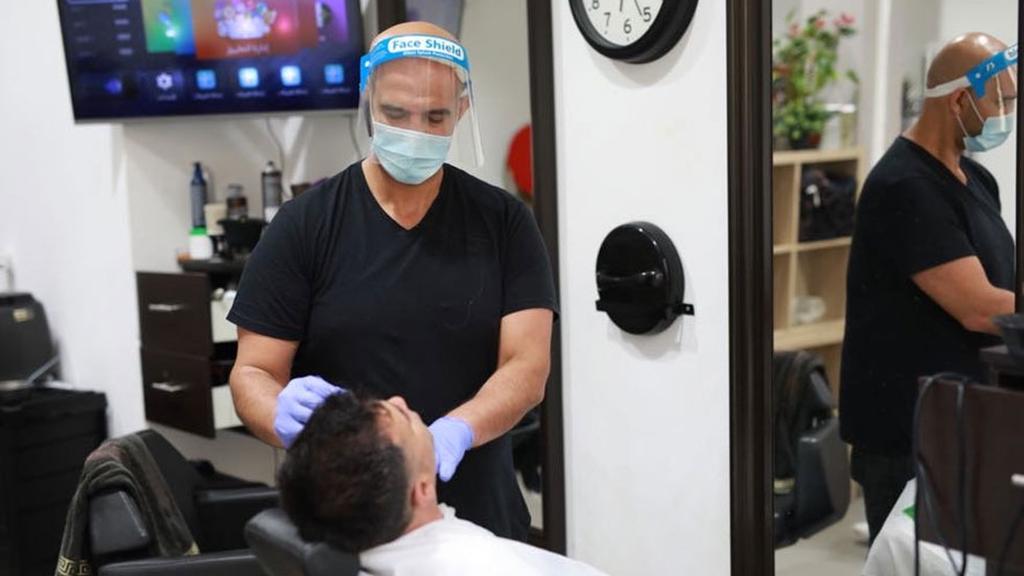Getting your Trinity Audio player ready...
There is an epidemic that has spread around the world. It is one that was not taught in medical schools despite its many embarrassing symptoms and its high rate of contagion.
I do not know its Latin name, if it was ever given one, but we laypeople call it Studio Sickness.
Serious, highly qualified and respected people are spending far too much time in television studios, apparently struggling to find the exit - all away from their respective fields and without wearing face masks.
The symptoms were compounded by the coronavirus pandemic and spared no one. The disease even struck the CEO of Israel's flag-carrier El Al, officials in the Health Ministry and every senior medical professional in Israeli hospitals.
The epidemic has not been so widespread and so grave since the last time retired generals rushed to stand in front of the cameras to hail Israel's "victory" over terror groups in Gaza.
Television is not my field and in order to fully appreciate it as a medium I read the critics' columns.
Yet I find that Studio Sickness affects decision-making on a national level - with significant social and economic ramifications.
5 View gallery


Israelis protest outside the Prime Minister's Office in Jerusalem over the economic toll of the lockdown
(Photo: Haim Golditch)
Take the military as an example. The climb up the ranks, as many who have served know well, exposes people to a world ruled by power.
There are officers who go over the edge due to their ability to deploy troops, bomb targets, change the reality on the ground while barking orders and bask in the glow of accolades after destroying real or imaginary enemies.
Others understand the limitations that come with the power afforded to them by their uniform and rank. They are aware of the need to proceed with caution and consider the cost of their actions.
5 View gallery


Prime Minister Benjamin Netanyahu, Health Ministry Director-General Moshe Bar-Siman-Tov and Health Minister Yaakov Litzman at the height of the pandemic
(Photo: Shalev Shalom)
Politicians are no different. They too abuse power bestowed upon them by their positions.
There was a time that the public could see those abuses through the actions of inspector generals. Today, thanks to efforts by the government, we have far less transparency in this regard.
The coronavirus crisis presented Health Ministry officials with more power than they have ever had before.
An ominous projection whispered in the ear of the prime minister was enough to persuade members of the cabinet and indeed the general public to believe that tens of thousands of Israelis could die.
Indeed, in the early weeks of the pandemic, there was a genuine need to invoke public fear.
No one really knew what to expect from the spread of COVID-19, and it took time to understand that while this was not the common flu it was also far from being the end of the world.
With time we came to realize that it only poses a real threat to a certain segment of the population, and can be contained effectively by social distancing, proper hygiene and face masks.
5 View gallery


Medical teams in protective gear at the Ichilov Medical Center in Tel Aviv
(Photo: Courtesy)
But although the spread of coronavirus was brought under some control, the same could not be said about health officials and their apocalyptic warnings, which found an eager ear in television studios.
The experts soon forgot just why they sounded the alarm at the beginning of the crisis.
"There will be no available ventilators," they warned in the early days of the pandemic. "Doctors will have to decide which patients will live and which will die."
Today, Israel has stockpiled thousands of ventilators and the number of fatalities from COVID-19 has reached just 300.
On what basis of facts do Health Ministry officials believe a second wave of the virus is sure to appear?
With our medical system better prepared, more aware of the workings of the disease and more confident of its ability to effectively respond to it, why sow more panic?
Rather than reactionary steps, we should block all-knowing officials from accessing studios and move on to the next crisis.
The jellyfish have also arrived at Israel's shores. Now, who wants to talk about how dangerous they are?



